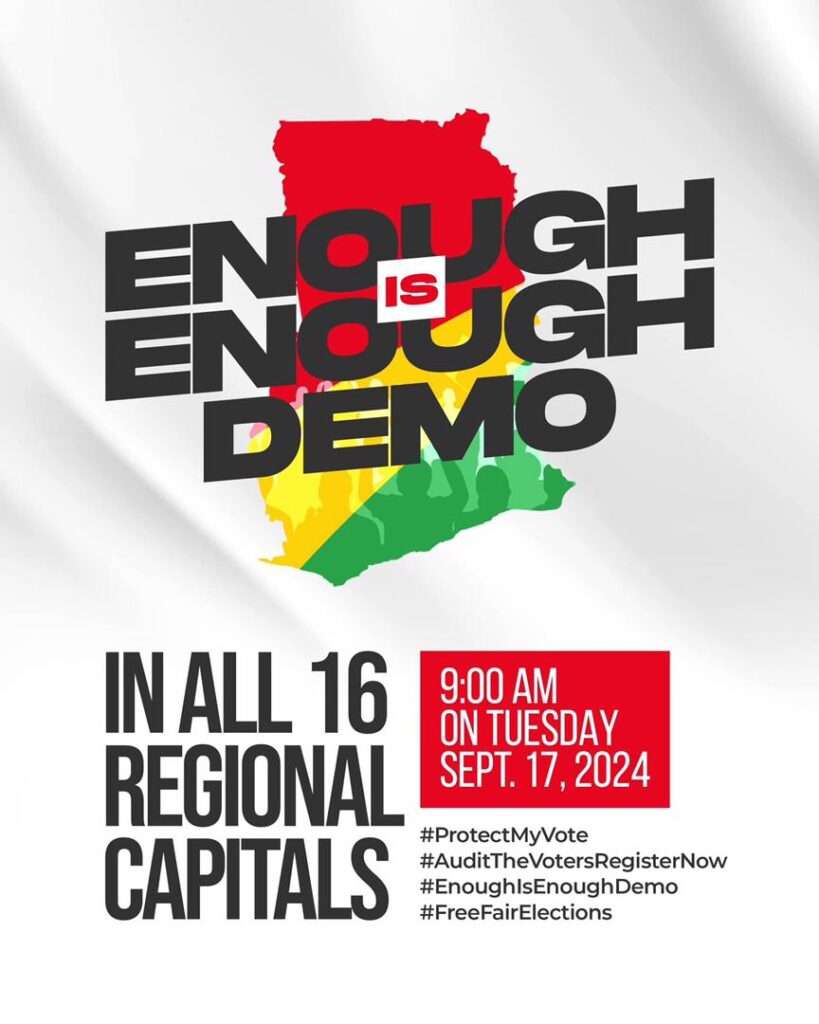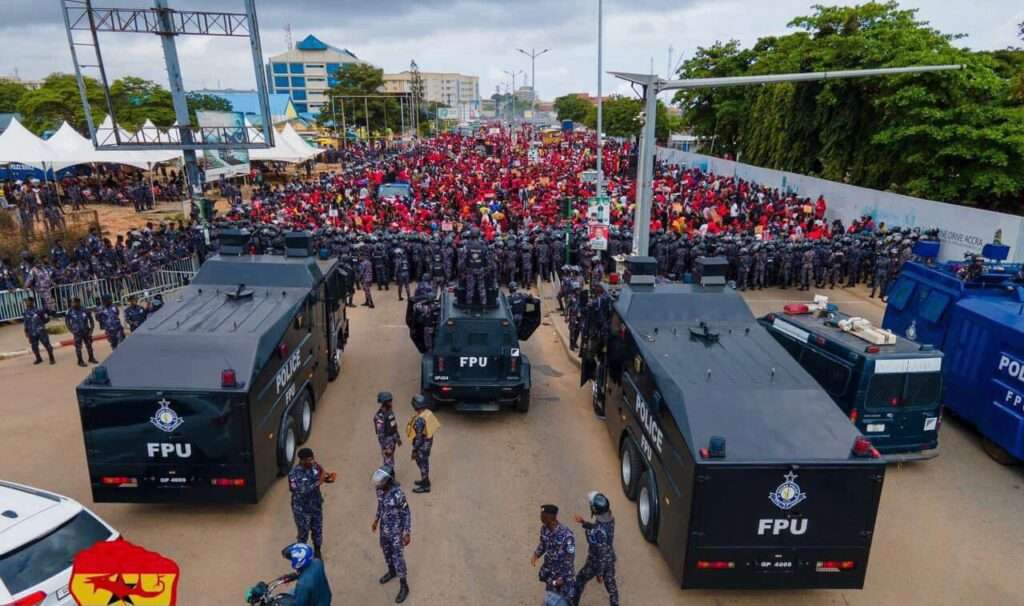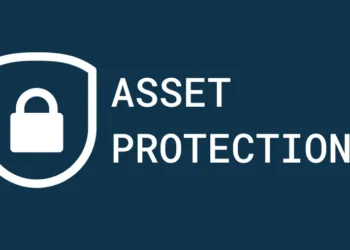The Ghana Police Service (GPS) has once again positioned itself at the center of the political landscape, announcing preparations for the National Democratic Congress (NDC)’s planned nationwide demonstration.
In preparation for this significant political event, the Ghana Police Service, through a press statement signed by Assistant Commissioner of Police (ACP) Grace Ansah-Akrofi, disclosed that comprehensive security measures have been put in place to ensure the safety and orderliness of the demonstrations.
“As part of preparations for the demonstration, the Ghana Police Service extensively engaged the leadership of the NDC and the Electoral Commission in all the regions across the country.
“The agreed routes for the demonstration in all 16 regions have been duly conveyed to the organizers.”
Ghana Police Service (GPS)
This collaboration, especially in finalizing agreed routes for the demonstration, represents a proactive effort by the Police to ensure the smooth conduct of the demonstrations.
While the release from the Police may seem routine, its underlying message emphasized an important balance between maintaining public order and safeguarding the constitutional right to peaceful protest.
The Ghana Police Service’s approach, based on cooperation with the NDC and the Electoral Commission, highlighted their commitment to maintaining peace while respecting democratic freedoms.
Such thorough preparation is essential in an environment where political demonstrations often attract large crowds and can quickly escalate into volatile situations.

In light of the politically charged atmosphere, the transparency of these engagements sends a positive signal that the Police are not simply enforcers of the law but partners in enabling citizens to express their opinions without compromising public safety.
However, collaboration is only as effective as its implementation on the ground. Historically, large political gatherings in Ghana have occasionally turned chaotic due to insufficient crowd control or miscommunication between organizers and the Police.
This also raises questions about the efficacy of these measures, the responsibilities of both the organizers and the Police, and the broader implications for Ghana’s democratic process.
Whether the collaboration in this instance will result in peaceful protests remains to be seen, and much will depend on how well both parties adhere to the agreements made during these preliminary engagements.
Responsibility and Liability: A Double-Edged Sword

The Ghana Police Service also reminded the organizers in its press statement, of their responsibilities under Section 3 of the Public Order Act, 1994 (Act 491).
The invocation of Section 3 of the Public Order Act puts a significant onus on the organizers of the NDC demonstration.
It states that “where at any special event any damage is caused to public property, the organizers, or any other persons found to have been responsible for the damage shall be liable to pay for the cost of the damage.”
This provision, while grounded in maintaining public order, can be interpreted as an attempt to discourage protests in their entirety by shifting financial liability onto the shoulders of political organizations.
In theory, it’s a reasonable expectation. Protest leaders must ensure that their demonstrations do not devolve into chaos or destruction, a principle that aligns with the need to preserve public infrastructure.
However, the GPS’s heavy emphasis on this responsibility in the press release could be seen as a not-so-subtle warning to the NDC, signaling that any disruptions would result in dire consequences.
“The organizers have also been informed of their duty to abide by all other laws since they will be held responsible for any breaches. We would like to urge the organizers and all participants in the demonstration to adhere to these arrangements and ensure full compliance with all laws and regulations.”
Ghana Police Service (GPS)
While the right to peaceful assembly is enshrined in Ghana’s constitution, it remains important that law enforcement does not overstep in its efforts to maintain control. Public protests are often spontaneous and passionate; while organizers may do their best to keep the peace, unforeseen incidents can arise.
The question then becomes: will the Ghana Police Service treat organizers fairly in the event of such disruptions, or will they weaponize these regulations to discourage future demonstrations?
The GPS reiterated its commitment to maintaining “security, law, and order throughout the period of the exercise and beyond.” This is a standard assurance expected from any law enforcement agency during periods of heightened political activity.
The press statement appeared to place a disproportionate focus on the responsibilities of the demonstrators while downplaying the potential role of law enforcement in exacerbating tensions during such events.
The line between policing and political partisanship can be thin, especially when dealing with demonstrations organized by major political parties such as the NDC. Historically, law enforcement in many parts of the world, including Ghana, has been accused of either taking sides or showing heavy-handedness during opposition protests.
For Ghana’s democracy to flourish, the police must not only protect the public from harm but also safeguard the right to peaceful protest without creating unnecessary barriers. The real test lies in the actions that follow this announcement—whether the GPS will truly act as an impartial guardian of law and order or as an instrument of political control.
READ ALSO: Moroccan Forces Prevent Border Breach





















